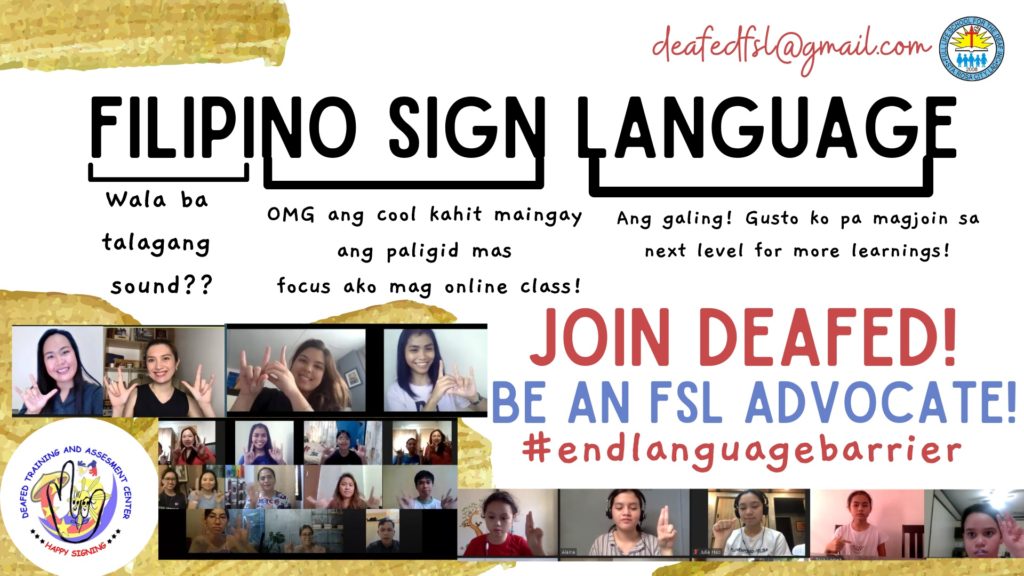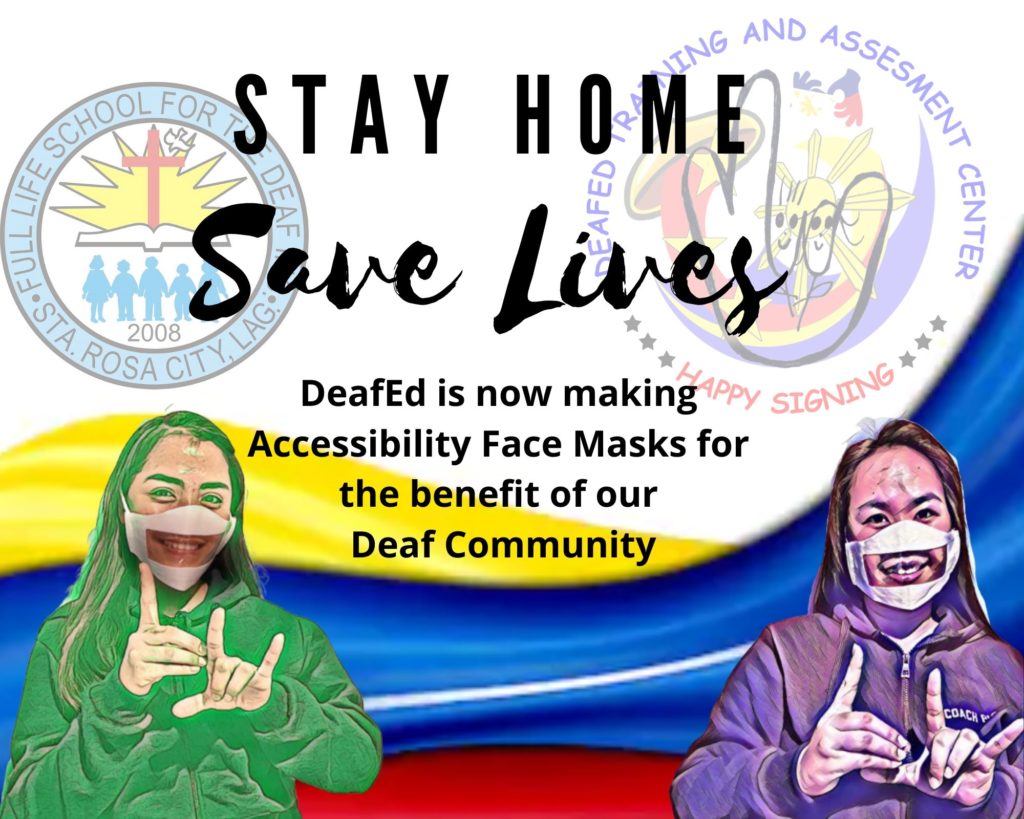The presence of media in our lives continues to grow more and more every day. Efforts such as having sign language interpreters interpreting the news or voice over features on phones have been implemented to make these more accessible and user-friendly for more people, although these do not always prove to be successful.
As much as technology provides in bridging the gap between language barriers, there is only so much that they can do. The DeafEd Training and Assessment Center continues working towards their dream of a “language barrier-FREE community” by offering Filipino Sign Language and Braille training workshops, as well as sending materials and references to help learn these things better.
DeafEd was created as an online educational service in 2017. Composed of Deaf staff, sign language interpreters, SPED teachers and more, DeafEd “aims to spread awareness, appreciation, and love for the Deaf and Blind [Communities] here in the Philippines”
Filipino Sign Language Advocate and founder of DeafEd, Coach Pia Gonzales-Jacinto, LPT explains that the non-government organization continues to work hard during the pandemic simply because “the Deaf and Blind [that] need to be heard at all costs.” She adds that people everywhere are “now experiencing mixed emotions, stress, [and] mental health issues, what more the Persons with disabilities?”
Coach Pia describes the difficulty some non-disabled people may be experiencing in maintaining their jobs, bringing up how people with disabilities were already struggling to get decent jobs even before the pandemic.
Over 200 people are now able to communicate with the Filipino Deaf community thanks to DeafEd and their FSL programs. DeafEd continues striving to empower people with disabilities, create a support system for families and individuals, and inspire allies to become FSL advocates and #EndLanguageBarrier.
Aside from online classes and home kits, DeafEd also advocates the use of “accessibility face masks”. Face masks make it difficult for people who rely on lip-reading to communicate, clear face masks allow for lip reading while still staying safe.
Coach Pia exclaims that learning more about these communities and how we may communicate with them, liberates us. Expanding our skill set allows us to communicate with more people who we might not have had the chance to meet and speak with, without these. “Multiplication of skills limits no one. We multiply our ability to touch lives, inspire, educate […] Finally, we will be FREE”
Open yourself up to the world around you and make deep and meaningful connections by learning more ways to communicate with other people, become an FSL advocate today and #EndLanguageBarrier.
Other POP! stories you might like:
‘With teaching I found fulfillment’: Teaching a contact sport online
Filipino Instagram book clubs remind us that reading is what? Fundamental
6 Book recommendations to help you fall (back) in love with reading
Avatar artist, Meder Taab, goes viral for lifelike artwork of Katara
16 Queer entrepreneurs & artists to support instead of rainbow capitalism



